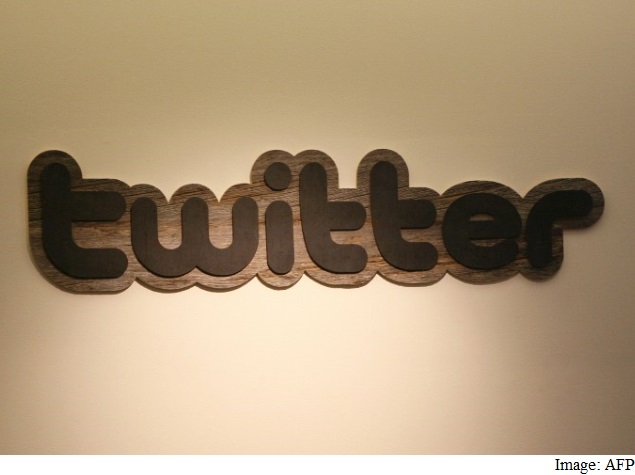- Home
- Social networking
- Social networking News
- Twitter Sees New Value in Its 'Fire Hose' of Data
Twitter Sees New Value in Its 'Fire Hose' of Data

On the surface, the announcement affects just the two remaining buyers of Twitter data, DataSift and NTT, and also suggests that Twitter no longer wants to sell its data wholesale, just retail. But it's also a deeper sign of the company's intention to compete with - and perhaps cut out - many middlemen that profit from helping marketers make sense of the flood of tweets to run their businesses more intelligently.
In a blog post, Twitter said the decision was a natural outgrowth of its purchase of Gnip, the leading reseller of Twitter data, about a year ago.
"Direct relationships help Twitter develop an understanding of customer needs, get direct feedback for the product road map and work more closely with data customers to enable the best possible solutions for the brands that rely on Twitter data to make better decisions," wrote Zach Hofer-Shall, head of the company's ecosystem program.
What he didn't say is that Twitter also thinks direct relationships will make more money. Last year, the company generated $147 million (roughly Rs. 917 crores), or roughly 10 percent of its revenue, from data licensing and other services, and its leaders see data as an area they have only begun to mine.
Chris Moody, the former chief of Gnip and now Twitter's vice president for data strategy, sketched out the data vision at a November meeting with Wall Street analysts. "In the future, every significant business decision will have Twitter data as an input, because why wouldn't you?" he said. "Why wouldn't you add into your business decision-making, 'What does the world think about this topic at this particular time or at a previous moment of time, maybe last year when we ran this campaign,' that type of thing?"
Twitter primarily works with dozens of data analysis and software companies, such as Adobe, Spredfast and Salesforce.com, as a data supplier.
"We realize that we are not an enterprise software company," Moody said in February. But Twitter wants to provide more than raw data: It wants to supply services to companies and teach them how to use Twitter data to better run their businesses.
It is already packaging its feed with data from other social sources, such as Yahoo's Tumblr, and wants to expand that further. That's a service that DataSift, one of the two resellers that were just cut off, also provides. And Twitter is working with companies like IBM to train thousands of consultants and conduct case studies of how Twitter data can transform specific industries.
"We see the data licensing business as extremely complementary to the advertising business," Moody said in a February interview. Once businesses understand the customer insights they get from tweets, he said, "when I want to advertise something, where would I turn? Twitter."
This is far different from four years ago, when Twitter struck licensing deals with Gnip and DataSift. Back then, Twitter didn't see much value in the data and focused more on selling ads. Now analyzing tweets for everything from stock tips to voter preferences has become big business, and Twitter wants a bigger piece of the profits.
Nick Halstead, chief executive of DataSift, said Twitter was making a mistake by forcing customers to directly license its data. DataSift preprocesses data from about 20 different social networks and makes it available to about 1,000 customers in a form that is easier and faster to use than direct licenses would entail.
Halstead said DataSift's business would not take a big hit from Twitter's move since it still has arrangements with other social networks. But, he continued, Twitter's decision will hurt his customers, who are ultimately Twitter's customers, too.
The shift is another warning to software developers that any company that is your partner today might very well become your competitor tomorrow.
© 2015 New York Times News Service
Catch the latest from the Consumer Electronics Show on Gadgets 360, at our CES 2026 hub.
Related Stories
- Samsung Galaxy Unpacked 2025
- ChatGPT
- Redmi Note 14 Pro+
- iPhone 16
- Apple Vision Pro
- Oneplus 12
- OnePlus Nord CE 3 Lite 5G
- iPhone 13
- Xiaomi 14 Pro
- Oppo Find N3
- Tecno Spark Go (2023)
- Realme V30
- Best Phones Under 25000
- Samsung Galaxy S24 Series
- Cryptocurrency
- iQoo 12
- Samsung Galaxy S24 Ultra
- Giottus
- Samsung Galaxy Z Flip 5
- Apple 'Scary Fast'
- Housefull 5
- GoPro Hero 12 Black Review
- Invincible Season 2
- JioGlass
- HD Ready TV
- Laptop Under 50000
- Smartwatch Under 10000
- Latest Mobile Phones
- Compare Phones
- OPPO Reno 15 Pro Max
- Honor Win RT
- Honor Win
- Xiaomi 17 Ultra Leica Edition
- Xiaomi 17 Ultra
- Huawei Nova 15
- Huawei Nova 15 Pro
- Huawei Nova 15 Ultra
- Asus ProArt P16
- MacBook Pro 14-inch (M5, 2025)
- OPPO Pad Air 5
- Huawei MatePad 11.5 (2026)
- Xiaomi Watch 5
- Huawei Watch 10th Anniversary Edition
- Acerpure Nitro Z Series 100-inch QLED TV
- Samsung 43 Inch LED Ultra HD (4K) Smart TV (UA43UE81AFULXL)
- Asus ROG Ally
- Nintendo Switch Lite
- Haier 1.6 Ton 5 Star Inverter Split AC (HSU19G-MZAID5BN-INV)
- Haier 1.6 Ton 5 Star Inverter Split AC (HSU19G-MZAIM5BN-INV)















